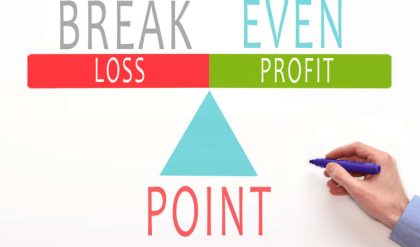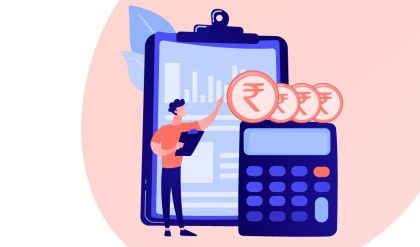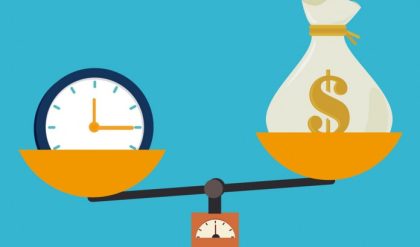Introduction
In economics, incentives matter. If you make decisions without thinking about your personal incentives, let us know.
Definitions and Basics
● Incentives Matter, by Russ Roberts at Econlib
● Incentives matter. The most famous example in economics is the idea of the demand curve—when something gets more expensive, people buy less of it. When it gets less expensive, people buy more of it….
● Demand, from the Concise Encyclopedia of Economics
● The main reason economists believe so strongly in the law of demand is that it is so plausible, even to noneconomists. Indeed, the law of demand is ingrained in our way of thinking about everyday things. Shoppers buy more strawberries when they are in season and the price is low. This is evidence for the law of demand: only at the lower, in-season price are consumers willing to buy the higher amount available. Similarly, when people learn that frost will strike orange groves in Florida, they know that the price of orange juice will rise. The price rises in order to reduce the amount demanded to the smaller amount available because of the frost. This is the law of demand. We see the same point every day in countless ways. No one thinks, for example, that the way to sell a house that has been languishing on the market is to raise the asking price. Again, this shows an implicit awareness of the law of demand: the number of potential buyers for any given house varies inversely with the asking price….
● What Motivates Us?, a LearnLiberty video.
● Prof. Mario Villarreal-Diaz discusses how incentives alter the behavior of unique individuals.
● The Power of Incentives, by Dwight Lee. At CommonSenseEconomics.com, originally from The Freeman
● The surest way to get people to behave in desirable ways is to reward them for doing so—in other words provide them with incentives. This is so obvious that you might think it hardly deserves mention. But it does.
● You might say that people shouldn’t have to be rewarded (bribed) to do desirable things. Even when you acknowledge that incentives are necessary, it is not obvious how to establish the ones that motivate desirable action.
● In one of my classes, I recently encountered the emotional resistance some people have to using incentives to accomplish good things. I was pointing out that the elephant populations in Zimbabwe and South Africa were expanding because policies there allow people to profit from maintaining elephant herds. A student who had stressed his environmental sensitivity responded that he would rather not see the elephant saved if the only way to do so was by relying on people’s greed. In other words, he was willing to stand on principle as long as only the elephants suffered the consequences. His principle, one that I suspect was shared by others in the class, was that good things should be motivated by compassion and concern, not self-interest….
● Incentives, Incentives, Incentives, by Allen R. Sanderson at Econlib
● If we’re dissatisfied with a particular activity or outcome, or want to modify some behavior, seeing the underlying incentives and finding a way to change them can often produce a more desirable result. And this might entail understanding who profits most, or suffers the consequences most directly, from one’s actions, and how to (re)align the incentive structures….
In the News and Examples
● Life-Saving Incentives: Consequences, costs and solutions to the organ shortage, by Alex Tabarrok at Econlib
● Our current organ procurement system relies solely on altruism to motivate donation. Altruism is a fine thing but it is in short supply….
● Incentives in sports: Michael Lewis on the Hidden Economics of Baseball and Football. Podcast at EconTalk
● Michael Lewis talks about the economics of sports—the financial and decision-making side of baseball and football—using the insights from his bestselling books on baseball and football: Moneyball and The Blind Side. Along the way he discusses the implications of Moneyball for the movie business and other industries, the peculiar ways that Moneyball influenced the strategies of baseball teams, the corruption of college football, and the challenge and tragedy of kids who live on the streets with little education or prospects for success….
● Slavery, Snakes, and Switching: The Role of Incentives in Creating Unintended Consequences, by Glen Whitman at Econlib
● In the developed world, we like to think of slavery as a bad memory. But slavery persists to this day, particularly in some parts of Africa, most notably the Sudan. Raiding parties steal children from their home villages and transport them for sale in slave markets many miles away. In the 1990s, when news of this ongoing tragedy came to the developed world, well-intentioned people formed charitable foundations that raised money for slave redemption—that is, buying people out of slavery.
● Did these charitable efforts do any good? Certainly, some people are free now who might otherwise of have lived their whole lives in slavery. But there is strong evidence to suggest that slave redemption made the overall situation worse. As journalist Richard Miniter reported in a 1999 article in the Atlantic Monthly, the high prices offered by relatively rich Americans increased the demand for slaves, turned the slave trade into an even more lucrative business, and thereby gave raiders an incentive to conduct even more slave raids. If not for the activities of Western charitable organizations, many of the redeemed slaves might never have been enslaved in the first place!…
● Boettke on Katrina and the Economics of Disaster. Podcast on EconTalk
● Pete Boettke of George Mason University talks about the role of government and voluntary efforts in relieving suffering during and after a crisis such as Katrina. Drawing on field research he is directing into the aftermath of Hurricane Katrina, Boettke highlights the role of what he calls “civil society”—the informal, voluntary associations we make as individuals with each other to create community….
● Incentives and disincentives of tenure: The Economics of the Tenure System, by Jeffrey A. Miron. Econlib, September 24, 2001.
● Tenure plays a valuable role in the operation of most colleges and universities, but for a reason quite different from those usually advanced in its defense.
● A military draft creates different incentives from an all-volunteer army for a government: Volunteers of America: Lessons from the New Contract Army, by Fred S. McChesney. Econlib, July 4, 2005.
● Being forced to rely on volunteers alters completely the way in which politicians and bureaucrats have to think about warfare in the first place. Economics predicts that the need to hire soldiers changes the incentives facing politicians to commit America to war….
● It is highly unlikely that Vietnam would have happened without conscription. Not enough men would have enlisted voluntarily at the going wage. As the saying at the time went, “What if they held a war and nobody came?” Of course, wages could have been raised sufficiently, but the cost would have been astronomical…
● Incentives provided by parents: Parent-onomics 101 Can Economics Help You Be a Better Parent?, by Donald Cox.
● Turns out Mr. Jones was providing just a bit too much help with homework–thereby diluting his son’s work incentives. There’s a name for this in economics: it’s called “crowding out,” and it applies generically to any situation where outside help merely supplants private efforts to solve a problem: be it social security and retirement savings, welfare payments and work effort, or public safety nets and charitable giving….
● I think economic principles have a lot to offer parents. Parents hold considerable sway over their kids. Maybe not as much as they like, but nonetheless: what parents do affects their child’s incentives. And the main take-home message of economics is that incentives matter. (Plus, even the word “economics” comes from the Greek oikonomia, or “housekeeping.” How appropriate is that for the quotidian life of kid management?)
● Incentives matter for growth and ideas throughout the world: An Interview with Paul Romer on Economic Growth, with accompanying podcast: Romer on Growth.
● We have things like universities, and we have things like patent laws, and we have things like research grants which have created incentives for those individuals to engage in more discovery. The institutions–again, the rules of the game–create incentives. And we’ve found ways to create incentives for people to do more discovery. So a meta-idea would be something like the modern research university….
● The Power of Incentives, by Dwight Lee. At CommonSenseEconomics.com, originally from The Freeman
A Little History: Primary Sources and References
● Population and birth control: Economic incentives are what prevent population from outstripping the food supply. Happiness, Progress and the “Vanity of the Philosopher” (Part 2): The Trial of Annie Besant and Charles Bradlaugh, by Sandra J. Peart, David M. Levy. Econlib, December 5, 2005.
● The popular interpretation of Malthusian population theory is one of inexorable tragedy—population will inevitably outstrip the food supply leading to famine and death. This caricature of Thomas Robert Malthus neglects his view that individuals could make choices to avoid tragedy, using their uniquely human gifts of foresight and calculation.
● Even though Malthus was aware of the sexual temptation associated with an unmarried state, Malthus advocated delay of marriage to prudentially restrain population….
● Of the general Checks to Population, and the Mode of their Operation, by Thomas Robert Malthus. Book I, Chapter 2 in An Essay on the Principle of Population.
● These checks to population, which are constantly operating with more or less force in every society, and keep down the number to the level of the means of subsistence, may be classed under two general heads—the preventive, and the positive checks.
● The preventive check, as far as it is voluntary, is peculiar to man, and arises from that distinctive superiority in his reasoning faculties, which enables him to calculate distant consequences. The checks to the indefinite increase of plants and irrational animals are all either positive, or, if preventive, involuntary. But man cannot look around him, and see the distress which frequently presses upon those who have large families; he cannot contemplate his present possessions or earnings, which he now nearly consumes himself, and calculate the amount of each share, when with very little addition they must be divided, perhaps, among seven or eight, without feeling a doubt whether, if he follow the bent of his inclinations, he may be able to support the offspring which he will probably bring into the world…. Will he not lower his rank in life, and be obliged to give up in great measure his former habits? Does any mode of employment present itself by which he may reasonably hope to maintain a family? Will he not at any rate subject himself to greater difficulties, and more severe labour, than in his single state? Will he not be unable to transmit to his children the same advantages of education and improvement that he had himself possessed?… [pars. I.II.3-4]
● Self-interest vs. benevolence as incentives: a selection from An Inquiry into the Nature and Causes of the Wealth of Nations, by Adam Smith
● It is not from the benevolence of the butcher, the brewer, or the baker, that we expect our dinner, but from their regard to their own interest…. [par. I.2.2]
● The size of incentives in economics can be estimated: , from Principles of Economics, by Alfred Marshall
● The advantage which economics has over other branches of social science appears then to arise from the fact that its special field of work gives rather larger opportunities for exact methods than any other branch. It concerns itself chiefly with those desires, aspirations and other affections of human nature, the outward manifestations of which appear as incentives to action in such a form that the force or quantity of the incentives can be estimated and measured with some approach to accuracy; and which therefore are in some degree amenable to treatment by scientific machinery. An opening is made for the methods and the tests of science as soon as the force of a person’s motives—not the motives themselves—can be approximately measured by the sum of money, which he will just give up in order to secure a desired satisfaction; or again by the sum which is just required to induce him to undergo a certain fatigue…. [par. I.II.2]
Advanced Resources
● Incentives in the law: Law and Economics, by Paul H. Rubin. Concise Encyclopedia of Economics
● The second characteristic of law and economics is its emphasis on incentives and people’s responses to these incentives. For example, the purpose of damage payments in accident (tort) law is not to compensate injured parties, but rather to provide an incentive for potential injurers to take efficient (cost-justified) precautions to avoid causing the accident. Law and economics shares with other branches of economics the assumption that individuals are rational and respond to incentives. When penalties for an action increase, people will undertake less of that action. Law and economics is more likely than other branches of legal analysis to use empirical or statistical methods to measure these responses to incentives.
● Elephants, ivory, property rights, village ownership, interest groups. Incentives and Institutions. Youtube, a LearnLiberty video.
● Economics professor Howie Baetjer of Towson University discusses how institutions, both public and private, affect the incentives that individuals face. These incentives impact the issues people care about, such as wildlife conservation.
● Profit incentives for entrepreneurs in Austrian economic theory. From “Equilibrium versus Market Process,” by Israel M. Kirzner in The Foundations of Modern Austrian Economics, ed. by Edwin G. Dolan
● The Austrian concept of the entrepreneurial role emphasizes profit as being the prime objective of the market process. As such it has important implications for the analysis of entrepreneurship in nonmarket contexts (such as within firms or under socialism or in bureaucracies in general). I have already remarked that we do not know precisely how entrepreneurs experience superior foresight, but we do know, at least in a general way, that entrepreneurial alertness is stimulated by the lure of profits. Alertness to an opportunity rests on the attractiveness of that opportunity and on its ability to be grasped once it has been perceived. This incentive is different from the incentives present in a Robbinsian world. In the nonentrepreneurial context, the incentive is constituted by the satisfactions obtainable at the expense of the relevant sacrifices. Robbinsian incentives are communicated to others by simply arranging that the satisfactions offered to them are more significant (from their point of view) than the sacrifices demanded from them. Incentive is thereby provided by the comparison of known alternatives. In the entrepreneurial context, however, the incentive to be alert to a future opportunity is quite different from the incentive to trade off already known opportunities; in fact it has nothing to do with the comparison of alternatives. No prior choice is involved in perceiving an opportunity waiting to be noticed. The incentive is to try to get something for nothing, if only one can see what it is that can be done.





